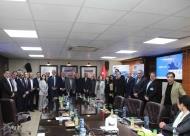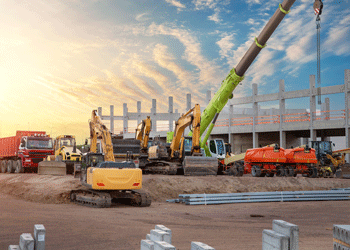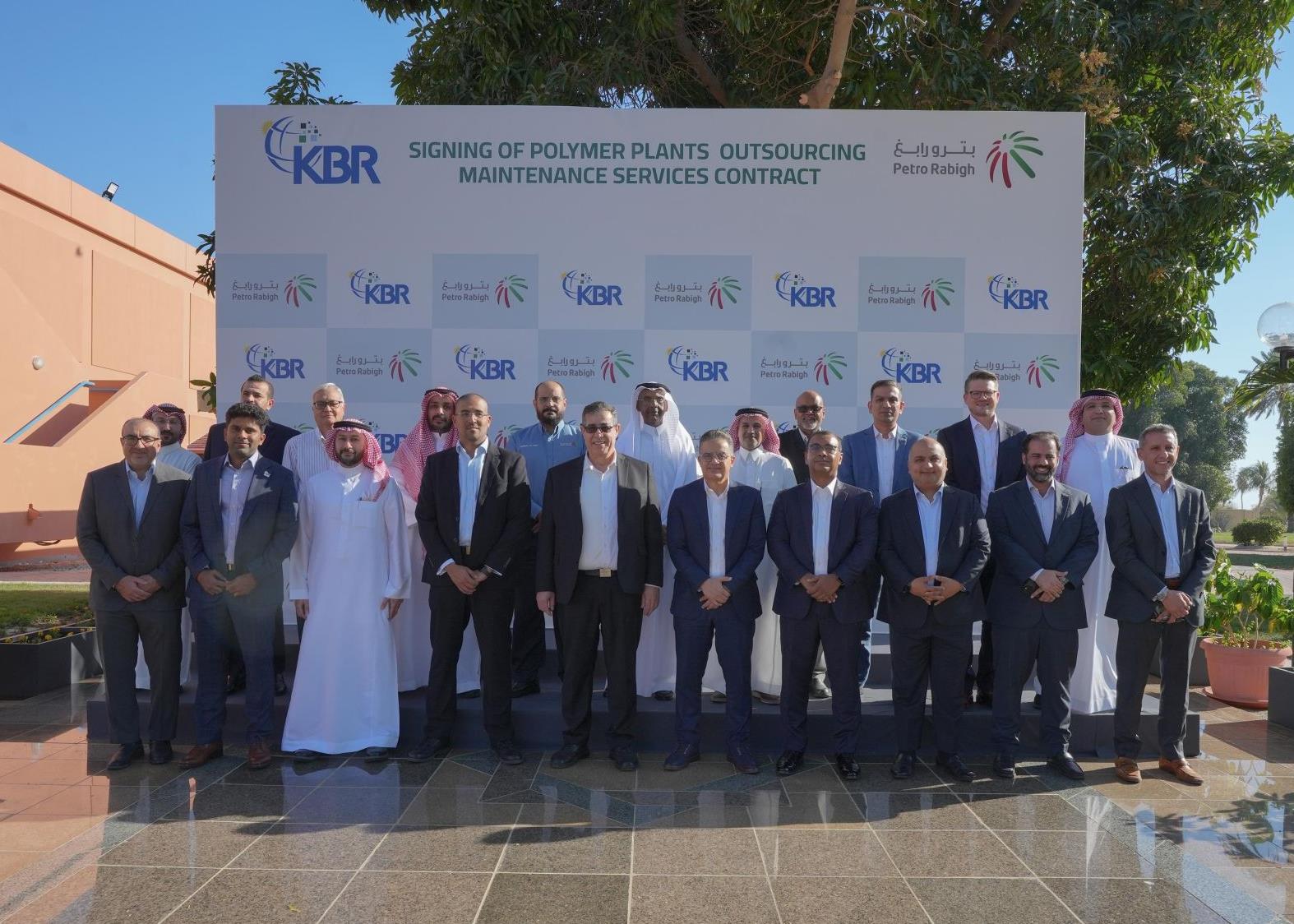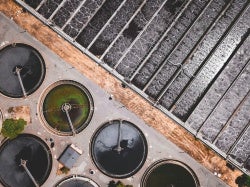The region’s most ambitious causeway projects
8 February 2023

The submission of feedback questionnaires and meetings with contractors for the planned second causeway connecting Saudi Arabia and Bahrain is the latest sign of potential progress on one of the region’s largest infrastructure projects.
Causeways have a chequered history in the region. The first causeway connecting Saudi Arabia and Bahrain was completed during the 1980s, and since then, it has had a transformative impact on the Bahraini economy.
The project’s success has inspired other causeways. But while these schemes remain ambitions for many in the region, construction progress has been limited. The hope is that a successful second causeway linking Saudi Arabia and Bahrain will foster the delivery of other longstanding causeway plans.
These are the most ambitious causeway schemes that the region has planned:
| Second Saudi Arabia-Bahrain causeway |
The second causeway between Saudi Arabia and Bahrain is the most likely to proceed. Planned by the King Fahd Causeway Authority, the $3.5bn project, which has been called the King Hamad Causeway project, is moving towards construction.
In 2021, senior government officials in Bahrain told MEED that the project was progressing towards tendering as financial studies had been completed.
The project was included in Bahrain’s $30bn Strategic Projects Plan that was announced later in 2021. As well as the causeway, the plan includes building new urban areas on five reclaimed islands to increase the country’s total land area by 60 per cent. It also comprises plans for a new airport.
The second causeway involves building a 25-kilometre road and rail crossing linking Saudi Arabia and Bahrain. It will follow the same alignment as the existing King Fahd Causeway.
It has been earmarked for delivery on a public-private partnership (PPP) basis. The King Fahd Causeway Authority appointed a consortium to provide transaction advisory services in late 2019.
The $8.9m consultancy agreement was signed with a consortium of Netherlands-headquartered KPMG, US-based Aecom and UK-based CMS. The team was tasked with working on developing the financing model, the required engineering specifications and design, as well as helping with the assessment and selection of the project’s developers.
Canada-based SNC Lavalin and UK-based consultancy firm PwC conducted the project due diligence study in 2017.
The existing King Fahd Causeway is operating at capacity. About 11.5 million cars cross the causeway every year, and the growth has been 6 per cent per annum over the past 10 years.

| Qatar-Bahrain causeway |
There have also been suggestions that the proposed causeway bridging Bahrain and Qatar may be revived. In March 2022, Manama called for work to restart on the causeway joining the two countries.
“We in the Kingdom of Bahrain renew the call for the start of bilateral talks between the two sides in accordance with the mechanisms agreed upon in the Al-Ula statement,” said Bahrain’s undersecretary for land transportation and post in an official statement published by the official Bahrain News Agency.
The estimated $4bn Qatar-Bahrain causeway project was put on hold and the contracting consortium demobilised in 2010.
A joint venture of state-owned developer Qatari Diar Real Estate Investment Company and French contractor Vinci Construction Grand Projets led the consortium. The other consortium members were Germany’s Hochtief, Athens-based Consolidated Contractors Company (CCC), Dredging International from Belgium and the local Middle East Dredging Company (Medco).
The planned 40km bridge includes a four-lane motor crossing scheduled for completion in 2013 and two railway lines forming part of the GCC rail network.
The project also comprises 22km of bridges and viaducts, 18km of embankments and two 400-metre cable-stayed bridges. The causeway connects Ras Ashairij on the west coast of Qatar to Askar on the east coast of Bahrain.
The project was also known as the Friendship Bridge and was to be jointly funded by the Qatari and Bahraini governments, which intended to recover some of the construction costs by implementing a toll system on the bridge.
The crossing would cut the journey time between the two countries, which currently involves a detour through Saudi Arabia, from five hours to just 30 minutes.
| Saudi Arabia-Egypt causeway |
The prospects for the causeway connecting the $500bn Neom project in Saudi Arabia and Egypt’s Sinai Peninsula across the Straits of Tiran improved last year after US President Joe Biden’s visit to Saudi Arabia.
After the visit, a joint communique issued by Washington and Riyadh referred to the development of Tiran Island.
“President Biden welcomed the arrangements by Saudi Arabia to remove the Multinational Force & Observers (MFO) from the Island of Tiran, including the removal of US troops there as part of the MFO mission, while preserving and continuing all existing commitments and procedures in the area,” it said.
“This area of the Red Sea will now be developed for tourism and economic purposes, contributing to a more secure, peaceful and prosperous region.”
The US-Egyptian-Israeli-backed MFO was founded in 1981 to oversee the terms of the 1978 Camp David Accords, which included the full Israeli withdrawal from the Sinai Peninsula.
In 2016, Egypt and Saudi Arabia agreed during a state visit to Cairo by King Salman bin Abdulaziz al-Saud to develop a causeway linking the two countries across the Red Sea.
The agreement was made as part of a broader deal that would also involve Egypt ceding the sovereignty of the two Tiran islands to Saudi Arabia.
While details of the proposed crossing were never revealed at the time, it was understood to be a revival of a $4bn project announced in 2011. That scheme involved building a 32km crossing stretching over the Straits of Tiran from Ras Humaid in Tabuk, in the northern region of Saudi Arabia, to Ras Nasrani, close to the Egyptian resort of Sharm el-Sheikh.
Plans to link Saudi Arabia and Egypt are far from new. The development of a causeway was first mooted as far back as 1988. However, the idea has received additional focus in recent years following the launch of the Neom development in northwestern Saudi Arabia, which includes Ras Humaid. Part of the Neom scheme, the 170km-long linear city known as The Line, will extend from the promontory inland to the city of Tabuk.
UK-based Arup was reported to have been selected in 2019 for the next stage of the feasibility study for the causeway.
Saudi Arabia was understood to be considering using a public-private partnership (PPP) model for the scheme, similar to other transport projects planned in and around the kingdom.
| Yemen-Djibouti causeway |
A 28.5km causeway was planned to connect Yemen and Djibouti before the scheme was put on hold in 2010 until the governments of both countries signed the framework agreement for the project. The civil war in Yemen means it is unlikely the scheme will make any progress soon.
The estimated $20bn first phase involved building the link between the Yemeni mainland to the island of Perim in the Red Sea. Phase two would have then connected Perim with Djibouti.
The wider project also involves building two cities at each end of the link. The total investment required to construct the cities and the bridge is $200bn.
Dubai-based Al-Noor Holding Investment Company was developing the project.
In 2009, the company said it expected to award a build-operate-transfer contract for the first phase of the bridge and that three companies had expressed interest in funding and building the road and rail link. Denmark’s Cowi prepared the preliminary design for the crossing.
| UAE-Qatar causeway |
In 2005, Abu Dhabi and Doha were reported to have been setting up a joint company to oversee the implementation of the proposed UAE/Qatar causeway.
The 40km causeway was expected to start near Sila in Abu Dhabi emirate and extend to the south of Doha.
The estimated $13bn crossing would have significantly cut journey times. At present, traffic between Qatar and the UAE has to pass through 125km of Saudi Arabian territory.
The scheme stalled shortly afterwards. Problems included difficulties with the route, which ran through Saudi Arabian territorial waters.
Exclusive from Meed
-
 SAR tenders phosphate rail project management deal
SAR tenders phosphate rail project management deal18 February 2026
-
 Veolia wins Jordan water services contract
Veolia wins Jordan water services contract18 February 2026
-
 PIF-backed firm signs worker accommodation deal
PIF-backed firm signs worker accommodation deal17 February 2026
-
 KBR wins 10-year maintenance contract from Petro Rabigh
KBR wins 10-year maintenance contract from Petro Rabigh17 February 2026
-
 Bidders await NWC decision on sewage contract
Bidders await NWC decision on sewage contract17 February 2026
All of this is only 1% of what MEED.com has to offer
Subscribe now and unlock all the 153,671 articles on MEED.com
- All the latest news, data, and market intelligence across MENA at your fingerprints
- First-hand updates and inside information on projects, clients and competitors that matter to you
- 20 years' archive of information, data, and news for you to access at your convenience
- Strategize to succeed and minimise risks with timely analysis of current and future market trends

Related Articles
-
 Veolia wins Jordan water services contract
Veolia wins Jordan water services contract18 February 2026
Register for MEED’s 14-day trial access
France's Veolia has signed a four-year performance-based management contract with the Water Authority of Jordan to support water and wastewater services in the country’s northern governorates.
Under the contract, Veolia will provide operations, maintenance and management services to Yarmouk Water Company, the public utility responsible for water supply and wastewater services in the region.
The agreement covers Irbid, Jerash, Ajloun and Mafraq, an area spanning nearly 30,000 square kilometres and covering about 3 million people.
The scope includes water and wastewater operations, maintenance, billing and collection, and customer service.
According to the firm, the performance-based structure prioritises measurable improvements, including service delivery, cost efficiency and revenue management.
The company said it will deploy technical and management specialists to support operations, rehabilitation works and investment initiatives.
The contract builds on Veolia’s existing operational role in Jordan’s water sector. The company operates the Disi-Amman scheme, which supplies about 100 million cubic metres of drinking water a year, under an operations and maintenance contract.
It also operates the Al-Samra wastewater treatment plant, which produces about 133 million cubic metres of treated wastewater annually for agricultural reuse.
https://image.digitalinsightresearch.in/uploads/NewsArticle/15684109/main0535.jpg -
 SAR tenders phosphate rail project management deal
SAR tenders phosphate rail project management deal18 February 2026

Register for MEED’s 14-day trial access
Saudi Arabian Railways (SAR) has floated another tender inviting firms to bid for a contract covering the project management consultancy services for its Phosphate 3 rail programme.
The tender was issued on 15 February with a bid submission deadline of 5 April.
The contract duration is 54 months.
The latest tender follows SAR floating a multibillion-riyal tender to double the tracks on the existing phosphate transport railway network connecting the Waad Al-Shamal mines to Ras Al-Khair in the kingdom’s Eastern Province.
The tender – covering the second section of the track-doubling works, spanning more than 150 kilometres (km) – was issued on 9 February. The bid submission deadline is 15 April.
Earlier this month, MEED reported that SAR received bids from contractors on 1 February for the project’s first phase, which spans about 100km from the AZ1/Nariyah Yard to Ras Al-Khair.
The scope includes track doubling, alignment modifications, new utility bridges, culvert widening and hydrological structures, as well as the conversion of the AZ1 siding into a mainline track.
The scope also covers support for signalling and telecommunications systems.
The tender notice was issued in late November with a bid submission deadline of 20 January.
Switzerland-based engineering firm ARX is the project consultant.
MEED understands that SAR is expected to tender a total of four packages for the phosphate railway line.
The other packages expected to be tendered shortly include the depot and the systems package.
In 2023, MEED reported that SAR was planning two projects to increase its freight capacity, including an estimated SR4.2bn ($1.1bn) project to install a second track along the North Train freight line and construct three new freight yards.
Formerly known as the North-South Railway, the North Train is a 1,550km-long freight line running from the phosphate and bauxite mines in the far north of the kingdom to the Al-Baithah junction. There, it diverges into a line southwards to Riyadh and a second line running east to downstream fertiliser production and alumina refining facilities at Ras Al-Khair on the Gulf coast.
Adding a second track and the freight yards will significantly increase the network’s cargo-carrying capacity and facilitate increased industrial production. Project implementation is expected to take four years.
State-owned SAR is also considering increasing the localisation of railway materials and equipment, including the construction of a cement sleeper manufacturing facility.
https://image.digitalinsightresearch.in/uploads/NewsArticle/15684025/main.jpg -
 PIF-backed firm signs worker accommodation deal
PIF-backed firm signs worker accommodation deal17 February 2026
Register for MEED’s 14-day trial access
Saudi Arabia's Smart Accommodation for Residential Complexes Company (Sarcc) has signed an agreement with Riyadh-based Mawref Company to develop a 12,000-bed worker accommodation project in North Riyadh.
The project will cover about 120,000 square metres (sq m), with a total built-up area of 150,000 sq m.
The development is expected to cost over SR669m ($178m), with the first phase slated for completion in 2029.
Sarcc is backed by the Public Investment Fund (PIF), the Saudi sovereign wealth vehicle.
The agreement follows Sarcc signing another agreement in September last year with privately-owned local firm Tamimi Global Company to explore collaboration in developing worker accommodation facilities in the kingdom.
The PIF launched Sarcc in October 2024 with the aim of developing and operating staff housing and accommodation assets in the kingdom.
Sarcc will develop and operate the staff accommodation facilities at major construction projects in Saudi Arabia.
The company will seek opportunities to invest in the sector to strengthen staff housing standards. Sarcc will also look to engage the private sector by enabling investment and partnership opportunities in sectors including construction, catering, transportation and retail.
https://image.digitalinsightresearch.in/uploads/NewsArticle/15672262/main.gif -
 KBR wins 10-year maintenance contract from Petro Rabigh
KBR wins 10-year maintenance contract from Petro Rabigh17 February 2026
Register for MEED’s 14-day trial access
Saudi Arabia's Rabigh Refining & Petrochemical Company (Petro Rabigh) has awarded US-based consultant KBR a 10-year contract to provide maintenance services covering the company’s polymer plants in Rabigh, on the kingdom’s Red Sea coast.
“This [contract award] marks a major step in Petro Rabigh’s transformation journey, supporting safer operations, stronger reliability and long-term improvement across its facilities,” Petro Rabigh said in , without providing further details.
Work on the operations and maintenance contract will be executed by KBR’s business line, which operates under the Houston-headquartered firm’s Technology Solutions portfolio, sources told MEED.
Prior to this contract, in March 2024, Petro Rabigh awarded KBR a similar five-year asset condition monitoring programme contract. As part of that job, KBR is to provide predictive maintenance services at Petro Rabigh’s main plant.
Petro Rabigh was originally established in 1989 as a basic topping refinery with crude oil processing facilities, located in Rabigh, 165 kilometres to the north of Jeddah in Mecca Province.
Saudi Aramco and Japan’s Sumitomo Chemical Company formed an equal joint venture in 2005 to transform the Petro Rabigh crude oil refining complex into an integrated refinery and petrochemicals complex, with the strategic objective of expanding Saudi Arabia’s annual production capacity of refined products and petrochemicals.
Three years after the creation of the Petro Rabigh joint venture, the partners floated 25% of its shares in an initial public offering on the Saudi Stock Exchange (Tadawul) in 2008, following which Aramco and Sumitomo Chemical each held 37.5% shares in Petro Rabigh, with the remaining shares listing on the Tadawul.
In October last year, however, Aramco completed the acquisition of an additional 22.5% stake in Petro Rabigh from Sumitomo Chemical. Following the completion of the transaction, valued at $702m or SR7 a share, Aramco became the majority shareholder in Petro Rabigh, with an equity stake of 60%, while Sumitomo retains an interest of 15%. The remaining 25% shares of Petro Rabigh continue to trade on the Tadawul.
ALSO READ: Petro Rabigh and Indian firm to study joint project investment
Following the formation of the Petro Rabigh joint venture in 2005, Aramco and Sumitomo Chemical launched the expansion of the refining facility into an integrated refining and petrochemicals complex in 2006, investing $9.8bn in the project, 60% of which was secured through external financing. Engineering, procurement and construction works on phase one were completed in 2009, with the integrated downstream complex entering operations in November of that year.
The Petro Rabigh downstream complex consists of a topping refinery that has a 340,000 barrel-a-day (b/d) crude distillation unit, a 47,000 b/d hydrotreater, a 12 million cubic-feet-a-day hydrogen plant, a 75,000 b/d naphtha merox unit and a 60,000 b/d kerosene merox unit, along with supporting utilities, product tankage and a marine terminal.
Aramco and Sumitomo Chemical initiated Petro Rabigh’s phase two expansion project, valued at $8bn, in 2014. The second expansion phase was commissioned in 2018 and added 15 chemicals plants to the Petro Rabigh complex, raising the facility’s total production capacity to 18.4 million tonnes a year (t/y) of petroleum-based products.
The expansion also increased Petro Rabigh’s capacity to process an additional 30 million cubic feet a year of ethane into 2.4 million t/y of ethylene and propylene-based derivatives, and achieved a naphtha output of 3 million t/y.
Expansion of the main existing chemicals plant and the establishment of a clean fuels complex comprising polyether polyols, naphtha treating and sulphur recovery units were also part of the phase two project.
Photo credit: Petro Rabigh on LinkedIn
https://image.digitalinsightresearch.in/uploads/NewsArticle/15670196/main5008.jpg -
 Bidders await NWC decision on sewage contract
Bidders await NWC decision on sewage contract17 February 2026

Saudi Arabia’s National Water Company (NWC) is evaluating five bids for package 12 of its long-term operations and maintenance (LTOM12) sewage treatment programme.
Known as the North Western B Cluster, LTOM12 forms part of the second phase of NWC’s rehabilitation of sewage treatment plants programme.
The contract covers the construction and upgrade of seven sewage treatment plants with a combined capacity of about 162,000 cubic metres a day (cm/d).
As MEED understands, the companies that have submitted proposals include:
- Alkhorayef Water & Power Technologies (Saudi Arabia)
- Civil Works Company (Saudi Arabia)
- Miahona (Saudi Arabia)
- Beijing Enterprises Water Group – BEWG (Hong Kong)
- Al-Yamama (Saudi Arabia)
Earlier this month, MEED exclusively reported that six contractors are competing for the North Western A Cluster Sewage Treatment Plants Package 11 (LTOM11), which has an estimated value of about $211m.
The project involves the construction and upgrade of two sewage treatment plants with a combined capacity of about 440,000 cm/d.
The scheme is being procured on an engineering, procurement and construction (EPC) basis with a long-term operations component.
It is understood that contracts for LTOM11 and LTOM12 will be awarded in May.
In January, a consortium of United Water (China), Prosus Energy (UAE) and Armada Holding (Saudi Arabia) won the main contract for the Northern Cluster Sewage Treatment Plants Package 10 (LTOM10).
This contract was the first to be awarded under the second phase of NWC’s rehabilitation of sewage treatment plants programme.
NWC previously awarded $2.7bn-worth of contracts for the first phase of its LTOM programme. This comprises nine packages covering the treatment of 4.6 million cm/d of sewage water for the next 15 years.
https://image.digitalinsightresearch.in/uploads/NewsArticle/15670141/main.jpg



